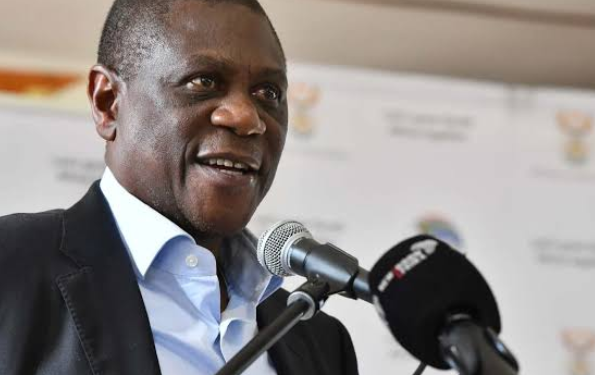South African Deputy President Paul Mashatile has firmly rejected claims that the country has reached any official agreement regarding the controversial Bela (Bilateral Economic and Legal Agreement) with Zimbabwe. This statement follows weeks of speculation and media reports suggesting that discussions between the two nations have led to a secret deal concerning trade and legal matters.
Addressing a gathering of journalists at the Union Buildings, Mashatile expressed concern over the spread of misinformation regarding the alleged Bela agreement. “There is no agreement on Bela, and any claims to that effect are unfounded,” Mashatile stated. He clarified that while South Africa maintains political ties with Zimbabwe, the ongoing discussions about potential collaboration have yet to result in any formalized arrangement.
The Bela agreement, which was rumored to focus on economic cooperation and the management of shared resources, including water rights and cross-border trade regulations, has stirred controversy across various sectors. Critics have raised concerns about the transparency of these talks, with some fearing that a hidden deal could undermine South Africa’s sovereignty or prioritize Zimbabwe’s interests over its own.
Mashatile’s comments came in response to increasing pressure from opposition parties and civil society groups who have demanded clarity on the nature of the discussions between the two countries. These groups have expressed concerns that an undisclosed agreement could impact South Africa’s foreign policy and its relationships with other regional powers.
The Deputy President reassured the public that South Africa’s foreign policy will remain focused on national interests and regional stability. “We will engage with Zimbabwe and other African countries based on mutual respect, equality, and the shared goal of regional development,” Mashatile emphasized.
While Mashatile has quashed rumors of any finalized agreements, it is clear that the bilateral relationship between South Africa and Zimbabwe will continue to evolve. Further discussions on economic and legal cooperation are expected, though the specifics remain under careful scrutiny by government officials.
As the situation develops, political analysts are closely monitoring the situation, with many speculating that the broader implications of such arrangements could shape the future diplomatic landscape of Southern Africa.






















